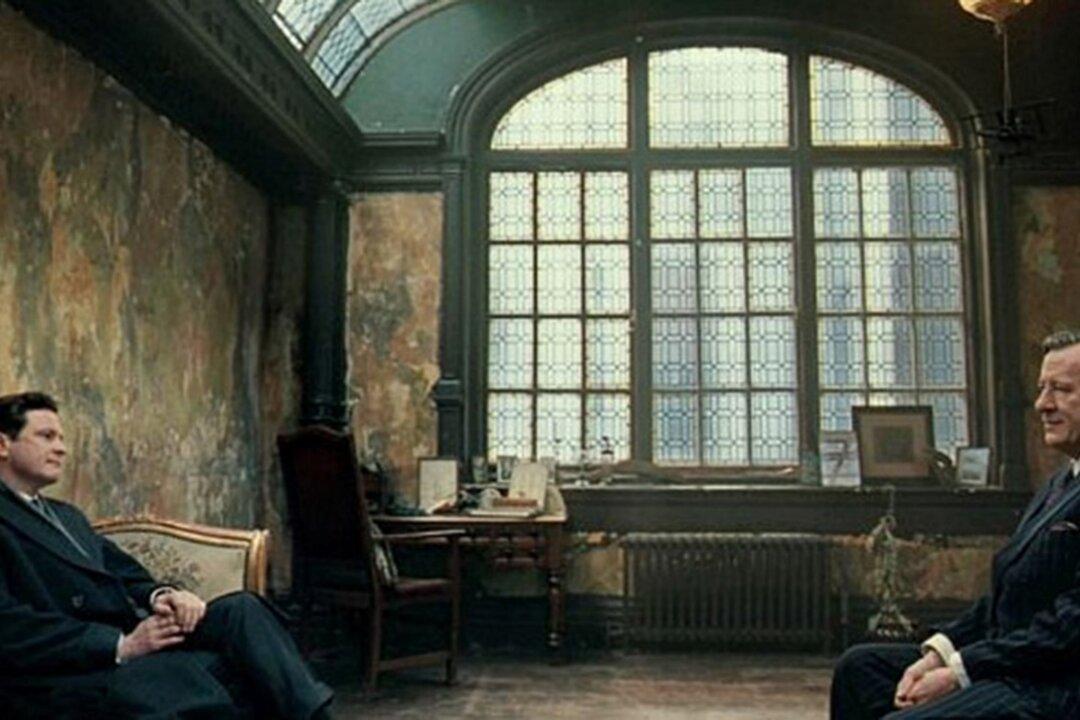Being able to communicate with others is something that a lot of folks take for granted—yours truly included. This is especially clear after watching director Tom Hooper’s royalty-centric bio-drama “The King’s Speech.”
The film opens in 1925. King George V (Michael Gambon) has requested that his second son, Prince Albert (Colin Firth), deliver the closing speech at the British Empire Exhibition at Wembley. There’s only one issue: Albert, known as “Berty” by his family, suffers from a severe stammer. As an inkling of how terrified he is of public speaking, as he shambles up to the microphone, he looks as though he is being led to the gallows.






